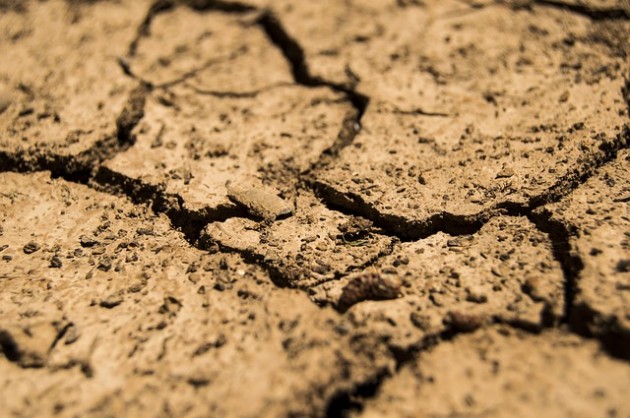The Lilith Blog 1 of 2
November 7, 2016 by Liya Rechtman
Why Climate Change Is a Jewish Feminist Issue
 At the beginning of the Jewish year, we read once again of our obligation to “till and tend” the earth (Genesis 2:15). In the first few lines of our sacred text, we read of the responsibility of humankind to care for and rule over the whole of creation. Our text is rooted in references to our deep Jewish agricultural and ethical obligations. So, clearly, climate change is a Jewish issue. The fight against rising sea levels and increased global temperatures is our fight. The work to maintain crop biodiversity and safeguard all lives from water and air pollution, especially lives in danger in low-income communities, is our work.
At the beginning of the Jewish year, we read once again of our obligation to “till and tend” the earth (Genesis 2:15). In the first few lines of our sacred text, we read of the responsibility of humankind to care for and rule over the whole of creation. Our text is rooted in references to our deep Jewish agricultural and ethical obligations. So, clearly, climate change is a Jewish issue. The fight against rising sea levels and increased global temperatures is our fight. The work to maintain crop biodiversity and safeguard all lives from water and air pollution, especially lives in danger in low-income communities, is our work.
And climate change is specifically a Jewish feminist issue. As Jewish feminists, we have to read what isn’t written. We know what it means to imagine silent voices into the stories, voices that were ignored and unimagined by two thousand years of misogynistic Jewish scholarship. Through rewriting Bible stories of decades now, we’re well versed in creating our own verses and listening for the voices of those who have not yet been heard. As the half of the Jewish tradition that has been recorded in our texts as implied references and unnamed actors, we are trained to listen to silence.
So, too, must we hear in the silence of our earth the need to combat climate change. We can’t calculate the monetary value of bees or the economic importance of polar bears for their ecosystem. We can, though, recognize the depredations of animal life signs as evidence that our climate can only absorb so much carbon dioxide and other greenhouse gases. The earth speaks to us via increased oceanic acidity, huge temperature shifts, extreme hurricanes.
In this new year, we need to speak out on the silence of the devastating effects of climate change. Jewish women have to show up on this issue. We need to advocate for clean energy in our communities.
As Jews, we have an obligation to care. As women, we bear the unique capacity to listen.
Liya Rechtman is a member of the Dorot Fellowship in Israel 16-17 living in Jerusalem.
 Please wait...
Please wait...